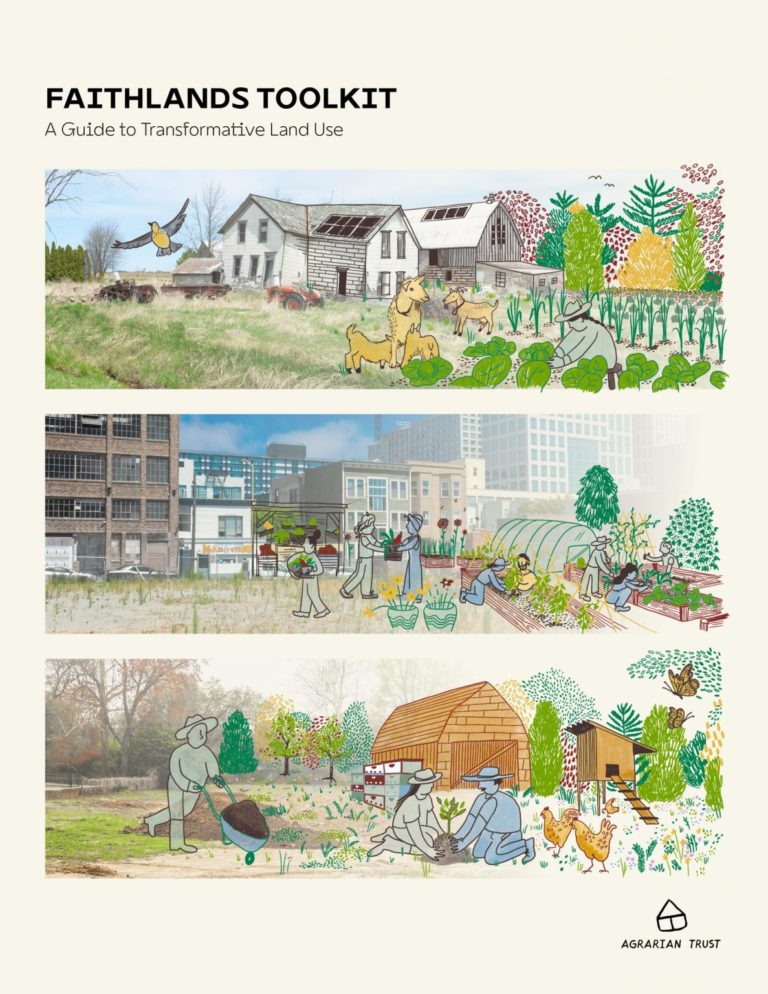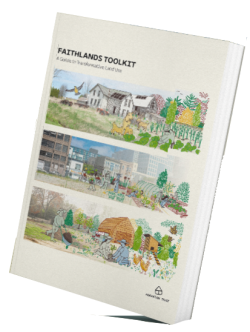
The FaithLands Toolkit supports partnerships between farmers, faith communities, and food systems in celebration of our interconnectedness to one another and our common home.

The FaithLands Toolkit serves as a guide to support faith communities in considering their respective spiritual traditions and linking those core values and beliefs to the land. Through case studies and thoughtful conversation, it offers ways to join a growing number of faith traditions in the production of food, the support of basic human needs, and the building of resilient communities, while also promoting equity and justice through the land.
This resource is available as a free digital download, or you can purchase a print copy.
Who Should Use This Toolkit?

- Members of faith communities seeking tools to persuade their leadership to implement faithlands projects
- Individuals seeking models for righting wrongs to land and people
- Communities and individuals seeking inspiration, information, and resources for supporting farming, gardening, and ecological renewal on their land
- Farmers interested in engaging a faith community in a land-access partnership
- Organizations and individuals who provide land-access assistance to farmers and want help thinking through how to approach a faith community
- Faith leaders seeking to engage community members in making land available to farmers
- Faith leaders seeking to engage their communities in reconciliation, reparative justice, and land return
- Faith groups interested in starting a community garden or other land-based enrichment opportunity for their members
- Members of faith communities seeking models for land justice and land stewardship to share with their leaders and congregations
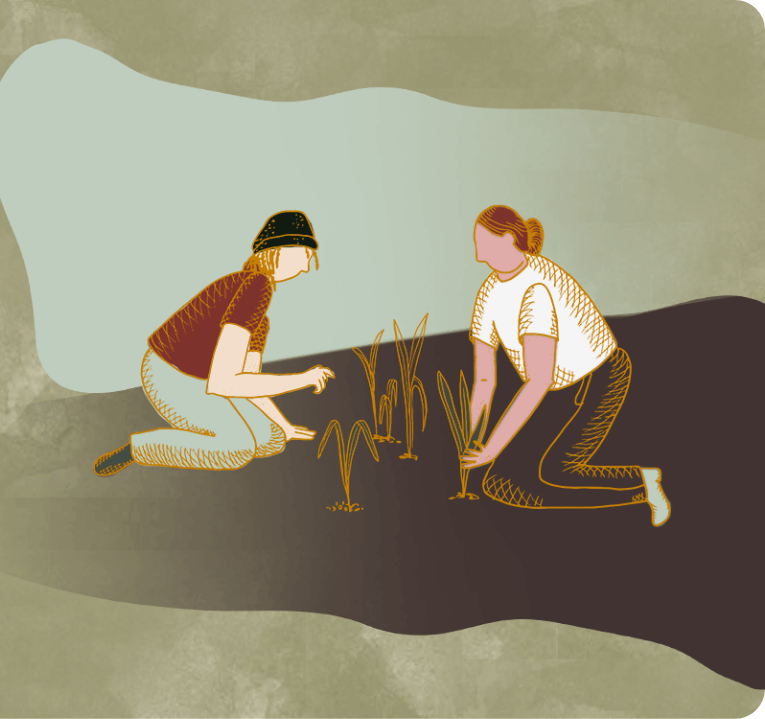
Why Should my faith community be thinking about land?
Land is the source of life. Without land, and without those who farm it, there can be neither ceremony nor food. Anyone who eats, anyone who prays, anyone who lives from the earth should be thinking about land.
Land has a history. For every tale of settlement, there is a tale of dispossession; for every tale of wealth, there is a tale of labor. The land carries these stories. Redressing historic wrongs—actions in contradiction to the central tenets of ethical and spiritual teachings—requires a truthful reckoning with the land’s history.
Land has a future. Reconnecting with land and agriculture, and enabling others to reconnect with and access land for farming and ceremony, is crucial to protecting the future of the land and all who live from it.
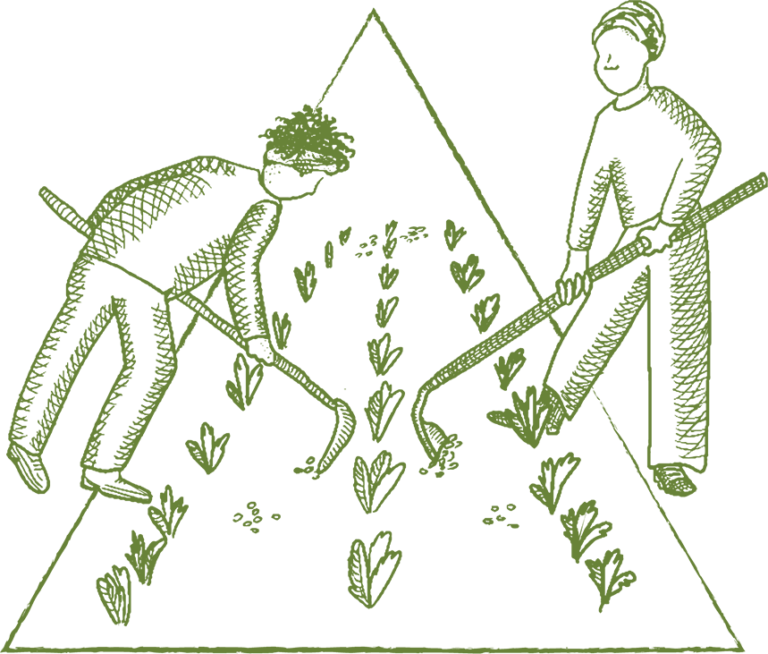
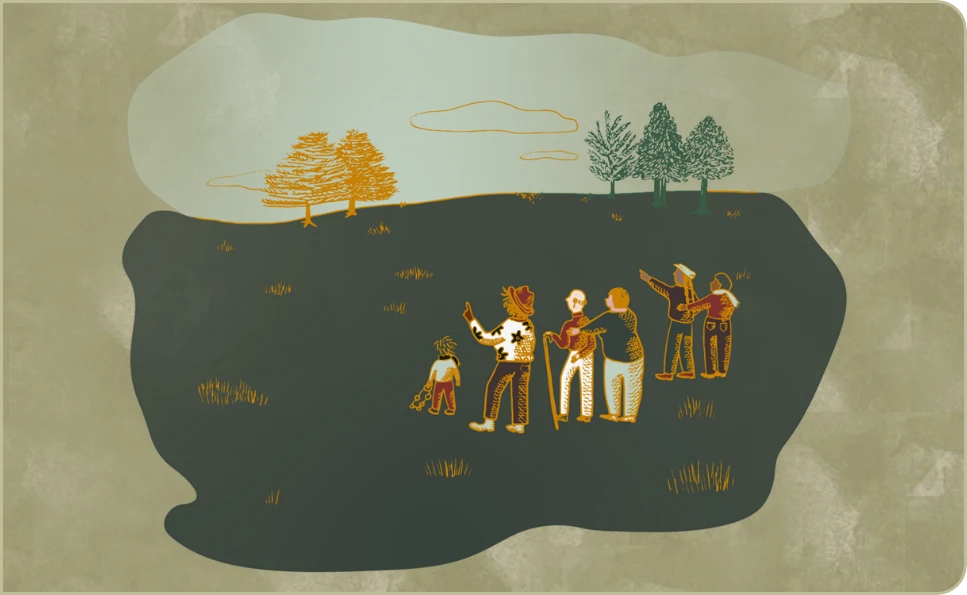
Why make faithlands available for farming?
The coronavirus pandemic has revealed the precarious state of industrial, long-distance food systems and the strength and value of decentralized local and regional food and farm systems. Unfortunately, many would-be farmers—particularly farmers of color—find the cost of land prohibitive. While faith groups own millions of acres of potential farmland, nearly all of it sits idle. By putting this land into the hands of conscientious farmers, faith communities can support a food system that reflects our shared values of justice, equity, sustainability, and reconciliation.
What role can we play?
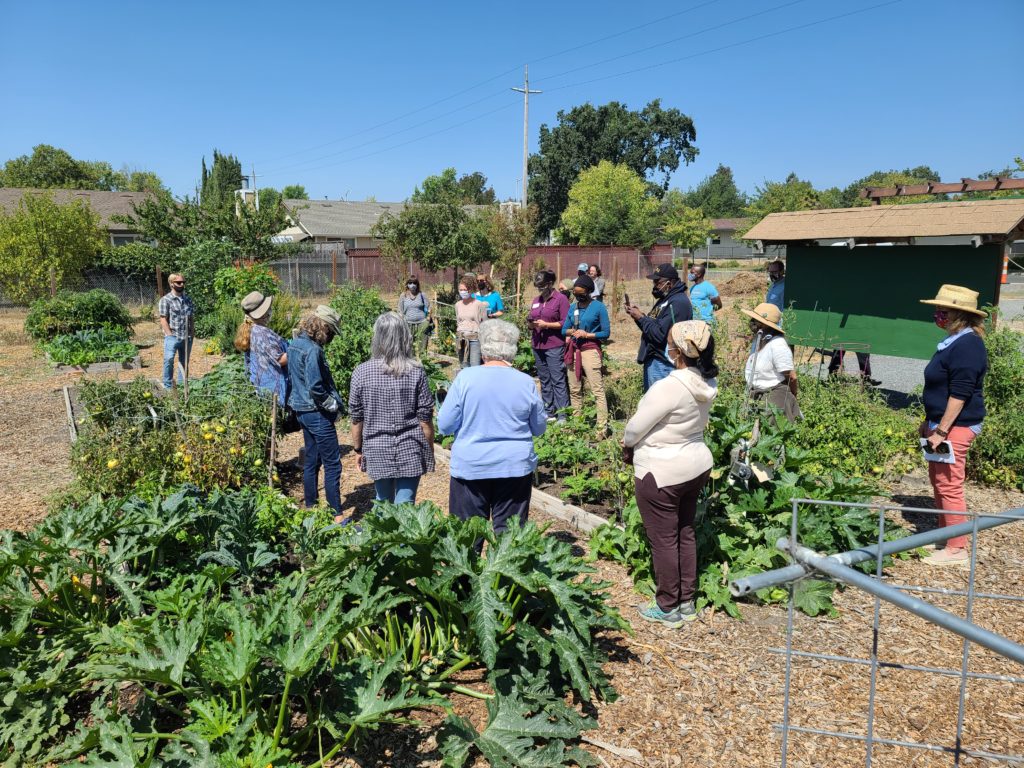
Landowning congregations, communities, and individuals can:
- Lease land to farmers or farming organizations
- Donate land (or proceeds from the sale of land) to farmers or farming organizations
- Return land to dispossessed peoples
- Partner with a land trust or other qualifying organization to protect land and/or make land accessible for farming or other land-based practices
- Start their own sustainable farm or gardening projects
All congregations, communities, and individuals can:
Support farmers and land-based organizations in their local communities and nationally
Advocate for sustainable land stewardship, equitable land access, and land justice
